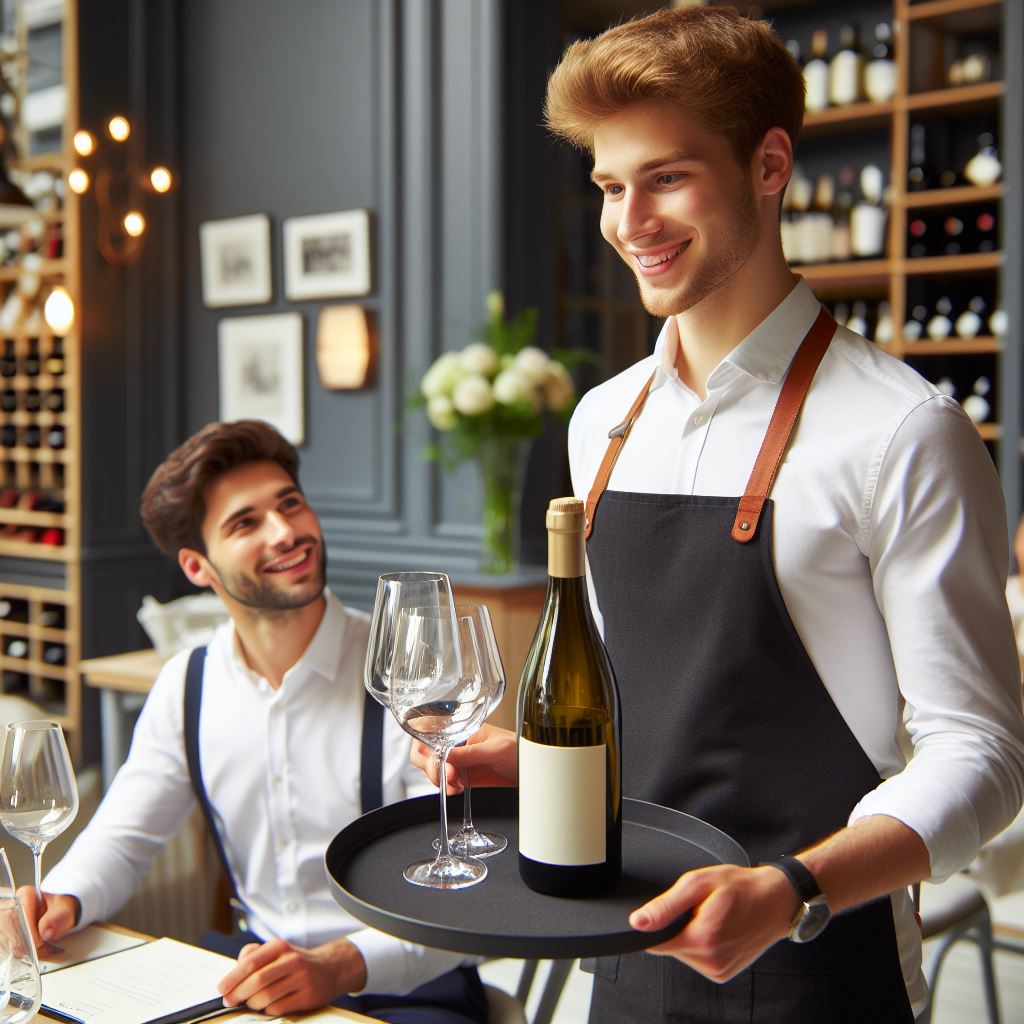Introduction
Navigating the UK’s event landscape involves understanding intricate legalities.
Compliance is pivotal for organizers and participants alike.
Understanding UK event laws ensures smooth, lawful experiences for all involved.
From licensing requisites to safety protocols, these laws encompass diverse aspects.
Awareness of legal boundaries empowers organizers to plan meticulously.
For attendees, comprehension fosters a secure event environment.
Legislation nuances, from noise restrictions to alcohol regulations, dictate event logistics.
Ensuring adherence mitigates risks and fosters a successful event culture.
The legal framework safeguards rights and guarantees a harmonious event landscape.
Understanding these laws is not just advisable; it’s imperative for a thriving event ecosystem.
Overview of UK event laws
Understanding UK event laws is pivotal in organizing and attending events.
These laws encompass diverse regulations concerning event logistics.
From music festivals to charity fundraisers, various events fall under these laws’ jurisdiction.
The laws’ primary aims encompass public safety, environmental preservation, and maintaining order.
These regulations ensure seamless event execution, prioritizing attendees’ safety.
They establish guidelines for organizers, emphasizing responsible planning.
Adherence to these laws fosters an environment promoting security and well-being.
Comprehending these regulations aids in meticulous event planning.
Be it sports events or cultural gatherings, compliance is crucial.
The laws safeguard against potential risks, ensuring event sustainability.
Understanding these guidelines enables organizers to craft inclusive and responsible planning.
Compliance not only respects legal requirements but also cultivates enjoyable event experiences.
These laws outline the responsibilities of both organizers and attendees.
They encourage conscientious decision-making throughout the event process.
By embracing these regulations, events become platforms for communal enjoyment while upholding legal standards.
Read: UK Chef Salaries: From Commis to Head Chef
Licensing requirements for events
Organizing events in the UK requires compliance with licensing requirements to ensure legality and safety.
These licenses act as a safeguard for both organizers and attendees, ensuring that events adhere to certain standards and regulations.
Types of licenses
In the UK, there are different types of licenses available for events depending on the nature of the event and the venue:
- Premises License: This license is required for events that take place on a specific premises, such as nightclubs, concert halls, or sports stadiums.
- Temporary Event Notice (TEN): If you are planning to organize a temporary event, such as a festival or a one-time concert, you will need to obtain a TEN.
- Personal License: This license is required for individuals who will be responsible for the sale or supply of alcohol at the event.
Application process
To obtain these licenses, an application process needs to be followed:
- Application forms can be obtained from the local council or licensing authority.
- The application must be submitted well in advance, as processing times can vary.
- By adhering to regulations and planning effectively, we can create safe, enjoyable events for everyone.
- Application Requires Processing Fee Payment
- The licensing authority will review the application and may conduct inspections before granting the license.
Consequences of non-compliance
Organizing an event without the required license can have severe consequences:
- Prosecution: Those found organizing events without a license can face legal action and be prosecuted.
- Fines: Heavy fines can be imposed on both the organizers and the venue for non-compliance.
- Event closure: Authorities have the power to shut down events that do not meet licensing requirements.
- Loss of reputation: Organizers may suffer reputational damage if they are seen as operating illegally.
- Increased liability: Without proper licensure, organizers may be held personally liable for any accidents or incidents.
It is important for event organizers to familiarize themselves with the licensing requirements and ensure compliance to avoid any legal or financial repercussions.
Following regulations and thorough planning ensures safe and enjoyable events for everyone involved.
Read: Bartending in London: Glamour, Challenges, and Tips
Health and safety regulations
Health and safety regulations play a crucial role in ensuring the well-being of attendees at UK events.
Event organizers must prioritize the implementation of these regulations to minimize hazards and maintain the safety of everyone involved.
Risk assessments are a fundamental part of event planning.
Organizers must identify potential risks and take measures to mitigate them.
This process involves assessing the venue, activities, and equipment to determine the likelihood of accidents or injuries.
Crowd management is a key aspect of health and safety regulations.
Event organizers must have plans in place to control and monitor the movement of attendees, particularly in densely populated areas.
This helps prevent overcrowding and reduce the risk of accidents or panic situations.
Emergency evacuation plans are critical for events of all sizes.
Organizers must establish routes and procedures to evacuate attendees safely in the event of an emergency, such as a fire or security threat.
Regular drills and clear signage are essential for effective evacuations.
Importance of Health & Safety Compliance in UK Events
First aid provisions are necessary to address any potential injuries or illnesses that may occur during an event.
Event organizers must have trained personnel and appropriate medical supplies readily available to provide immediate assistance when needed.
First aid stations should be clearly marked and easily accessible.
Non-compliance with health and safety regulations can lead to severe penalties.
Event organizers who fail to prioritize the well-being of attendees may face legal consequences, including fines and potential closure of their events.
These penalties are in place to ensure the highest standards of safety are upheld.
Personalized UK Career Consulting
Receive tailored career guidance designed just for you. Get actionable steps and expert support to boost your career in 1-3 days. Take control of your career now.
Get StartedIn short, health and safety regulations are of utmost importance in UK events.
Event organizers must conduct comprehensive risk assessments and implement measures such as crowd management, emergency evacuation plans, and first aid provisions.
Non-compliance with these regulations can result in significant penalties.
Prioritizing health and safety is necessary to ensure the well-being of attendees and the success of any event.
Read: Navigating UK Bartending Licenses: A Step-by-Step Guide

Gain More Insights: Overcoming Challenges in Travel Consulting
Learn More: A Day in the Life of a UK Travel Consultant
Alcohol licensing
When it comes to organizing events in the UK, understanding the specific laws and regulations surrounding the sale and consumption of alcohol is crucial.
Here’s a comprehensive guide to help you navigate the world of alcohol licensing at events.
1. Specific Laws and Regulations
- The Licensing Act 2003 governs the sale and supply of alcohol at events in the UK.
- Events must obtain a premises license or a temporary event notice (TEN) to sell alcohol.
- Alcohol cannot be sold to anyone under the age of 18, except in specific circumstances outlined in the law.
- Organizers must ensure that the sale and consumption of alcohol do not cause a public nuisance.
- Alcohol must not be sold below the minimum pricing set by the government.
2. Obtaining an Alcohol License for Events
To obtain an alcohol license for events, organizers must follow a specific process:
- Identify the type of event and determine if a temporary event notice (TEN) is required.
- Complete the relevant application forms and submit them to the local licensing authority.
- Provide details of the event, including the date, hours of operation, expected attendance, and proposed alcohol activities.
- Pay the necessary application fees and await the decision from the licensing authority.
- If approved, organizers will receive the alcohol license, which outlines the specific conditions and restrictions.
3. Legal Age Restrictions and Responsible Drinking
When it comes to alcohol at events, age restrictions and responsible drinking guidelines are crucial to ensure safety and compliance with the law:
- The legal drinking age in the UK is 18 years old. It is illegal to sell alcohol to anyone under this age.
- Organizers must have robust age verification systems in place to prevent underage drinking.
- Responsible drinking guidelines, such as limiting the number of alcoholic beverages per person, should be implemented.
- Event staff should receive proper training on responsible alcohol service and identifying signs of intoxication.
- Implementing designated driver programs or providing alternative transportation options can encourage responsible drinking.
4. Consequences of Breaching Alcohol Licensing Laws
Breaching alcohol licensing laws can lead to severe consequences for both event organizers and attendees:
- Fines: The licensing authority can impose significant fines on individuals or organizations found breaching the laws.
- License Suspension or Revocation: Repeated or serious violations can result in the suspension or revocation of the alcohol license.
- Criminal Charges: In some cases, organizers or individuals involved in illegal alcohol activities may face criminal charges.
- Damage to Reputation: Breaching alcohol licensing laws can tarnish the reputation of event organizers and may impact future opportunities.
- Increased Liability: Non-compliance with alcohol laws can result in increased liability for accidents, injuries, or damages that may occur at the event.
therefore, understanding and adhering to alcohol licensing laws is vital for event organizers.
By following the specific regulations, respecting age restrictions, promoting responsible drinking, and avoiding potential breaches, events can be enjoyable and safe for everyone involved.
Read: The Rise of Mixology in the UK: More Than a Trend
Noise regulations
Hosting events in the UK comes with certain obligations, especially when it comes to noise regulations.
Event organizers must ensure they adhere to specific noise limits to prevent disturbances to the surrounding area.
Adhering to Noise Limits
When planning an event, organizers must pay close attention to noise levels.
They must implement measures to manage excessive noise, ensuring a peaceful environment for attendees and nearby residents.
Devices known as noise limiters monitor and control sound levels during events.
These limits are typically lower during the night-time, as residents expect a quieter environment when they are trying to sleep.
Soundproofing Measures
One effective way to prevent noise disturbances is by implementing soundproofing measures.
Event venues need to install ample sound insulation to minimize the transmission of sound to nearby properties.
Your Dream Job Starts with a Perfect CV
Get a tailored CV and cover letter that captures your unique strengths and stands out in your industry. Let us help you make an unforgettable first impression.
Get StartedYou can use soundproofing materials on walls, floors, and ceilings to reduce noise leakage.
Employing sound engineers or acoustic consultants can help identify potential noise issues and recommend appropriate solutions.
Use of Noise Limiters
Devices known as noise limiters monitor and control sound levels during events.
The sound system connects them and automatically lowers the volume if the noise surpasses a specific limit.
Organizers need to install and properly set noise limiters to comply with local regulations.
They act as a safeguard to prevent excessive noise and minimize disturbances to the surrounding area.
Penalties for Exceeding Noise Limits
If event organizers exceed the noise limits set by local authorities, they may face penalties and fines.
These penalties can range from monetary fines to the cancellation of future event permits.
It is crucial to comply with noise regulations not only to avoid legal consequences but also to maintain a positive reputation.
Event organizers who consistently breach noise limits may find it difficult to obtain permits for future events.
Impact on Future Event Permissions
Repeatedly exceeding noise limits can have serious consequences for event organizers.
Local authorities may take a strict approach and refuse to grant permits for future events.
To ensure the success of future events, it is essential for event organizers to demonstrate their ability to manage noise effectively.
This can involve implementing stricter noise control measures and monitoring techniques.
Noise regulations play a crucial role in the successful execution of events in the UK.
Event organizers must adhere to specific noise limits, implement soundproofing measures, and utilize noise limiters to prevent disturbances.
Exceeding noise limits can result in penalties and impact future event permissions.
By prioritizing noise management, event organizers can create a more enjoyable experience for attendees while maintaining harmony with the surrounding community.
Conclusion
understanding and complying with UK event laws is crucial for hosting successful and legal events.
By recapping the key points discussed in this blog post, we have highlighted the importance of familiarizing oneself with specific laws and regulations that apply to their events.
It is important to seek professional advice if needed to ensure full compliance with these laws.
By doing so, event organizers can avoid legal trouble and create a positive and safe environment for attendees.
So, don’t overlook the significance of UK event laws and make sure to follow them for a successful event.
[E-Book for Sale]
500 Cutting-Edge Tech Startup Ideas for 2024 & 2025: Innovate, Create, Dominate
$19.99 • 500 Tech Startup Ideas • 62 pages
You will get inspired with 500 innovative tech startup ideas for 2024 and 2025, complete with concise descriptions to help you kickstart your entrepreneurial journey in AI, Blockchain, IoT, Fintech, and AR/VR.




